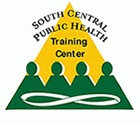
Environmental Epidemiology
Course Description:
This course is designed to provide an overview of environmental epidemiology and the principles and methods used in the investigation of human health effects associated with environmental exposures. Three common scenarios for the exposure-disease relationship are described as are study design approaches. Particular focus is given to the problems associated with disease cluster events, both in the investigation and interpretation of findings.
Methodologic issues such as the calculation, interpretation and communication of risk measurements (relative risk and odds ratio) are covered. Exposure assessment in environmental settings is described and includes discussion of routes of exposure, environmental media, and measurement parameters such as concentration, duration and frequency. Choices and limitations of exposure assessment strategies are discussed with coverage of the possible effects of exposure misclassification upon interpretation of study findings.
Target Audience
Academic Faculty/Staff, Federal Government Employees, State Government Employees, Local Government Employees, Non-Government Employees and Students
Learning Objectives
- Describe exposure routes of environmental contaminants
- Identify the study designs used to investigate possible human health effects of environmental exposures
- Describe the strengths and weaknesses of the commonly used study designs
- Calculate and interpret measures of association such as relative risk and odds ratio from a standard 2 x 2 table
- Discuss how environmental exposure can be measured, comparing the use of actual versus surrogate measurements
- Describe the possible influence of misclassification of exposure on the accuracy of risk measurements
Instructor:

Dr. Mary Hovinga, PhD, MPH
Associate Dean for Academic Affairs
Associate Professor, Department of Epidemiology and Biostatistics
Available Credit
- 6.00 Participation/CETulane Professional and Continuing Education (PaCE) awards 6.00 hour(s) of credit for completing Environmental Epidemiology
Price
Required Hardware/software
System Settings
This course is designed to work most effectively if your computer and internet connection meet certain minimal requirements. This course can be accessed using a Windows 10 PC or a Mac with High Sierra1, Mojave, or Catalina. Pop-up blockers should be disabled when viewing the course. Internet Explorer 11 (for Windows 10), or the current version of Google Chrome, Mozilla Firefox, or Apple Safari (for Windows 10 and or Mac) is required. Many of our courses require Java and JavaScript enabled.
Links to External Websites
Links to websites outside this course will open in a new window or tab. Some browsers may minimize the course window. If this occurs, maximize the course window to return to the course.
Adobe Acrobat Reader (for desktops and laptops)
Adobe Acrobat Reader is required to access some documents in this course. If you need to download a free copy of Acrobat Reader, click here.
Internet Connection Speed
A minimum download speed of 1.5 Mbps is recommended for an optimal experience, which is commonly the speed associated with a basic DSL or a cellular/satellite connection. A faster connection, such as cable or fiber service, with further enhance your online experience. A Wi-Fi connection is generally acceptable, but it is dependent upon one of the two services mentioned above. You can check your internet connection speed at http://www.speedtest.net/.

 Facebook
Facebook Twitter
Twitter LinkedIn
LinkedIn Forward
Forward